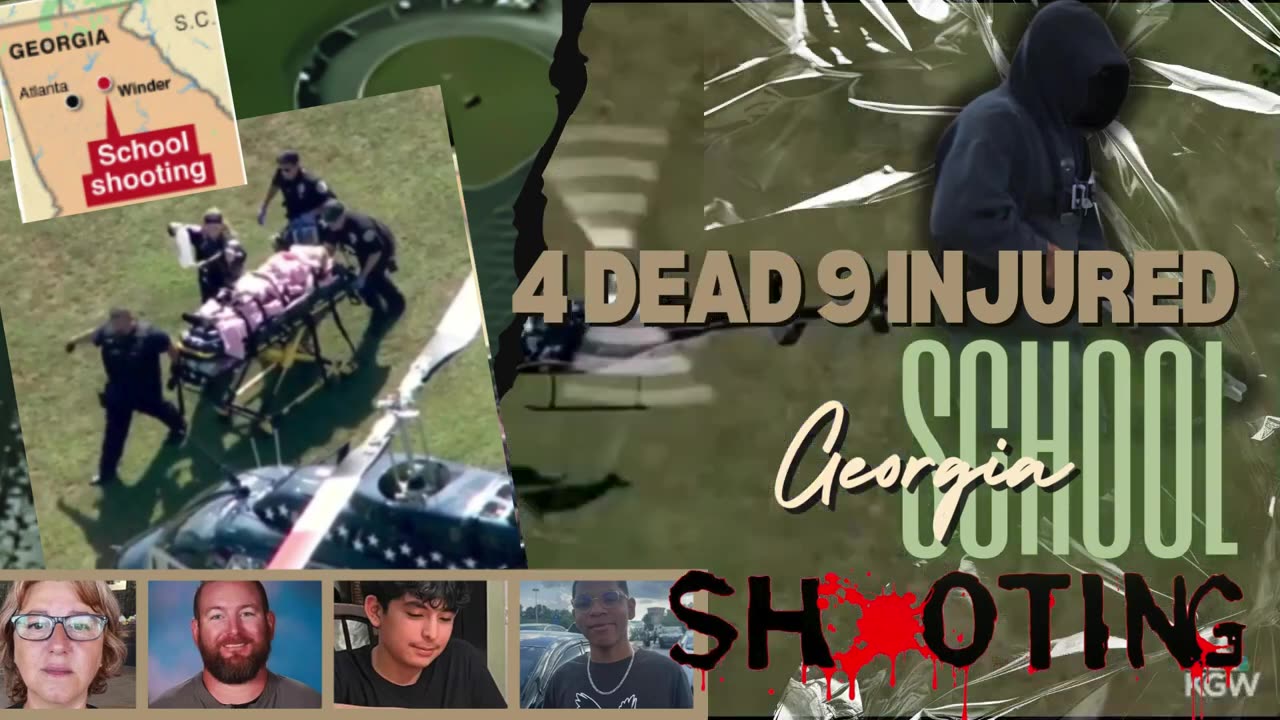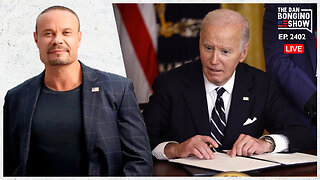Premium Only Content

Georgia School Shooting | Are we paying enough attention to our children?
https://youtu.be/RquQNZck0b4?si=hXxDAZJThSPauxK4
he issue of school shootings is a deeply emotional and complex topic that raises numerous concerns, particularly about the safety and well-being of children. The question of whether we are paying enough attention to our children is critical in understanding and addressing this ongoing tragedy.
Are We Paying Enough Attention?
Mental Health and Emotional Support: Many children, especially adolescents, face immense pressure, stress, and mental health challenges. While awareness around mental health has grown, many schools and communities still lack the resources to adequately address these issues. Providing access to counselors, creating safe spaces, and encouraging open dialogue about emotions are steps that many argue need to be prioritized. Unfortunately, underfunded mental health services and stigmatization still hinder this progress.
Parental Involvement: In many cases, parents are either unaware or unable to fully engage with their children's emotional and psychological state. Busy work lives, lack of awareness about warning signs, and the challenges of communication with teens can all contribute to a lack of attention. Parents often struggle to find the balance between giving their children independence and ensuring they are attentive to potential warning signs of distress or danger.
School Environment and Safety Protocols: Schools should be safe havens, but for many children, they have become sources of anxiety. While schools implement safety measures such as lockdown drills and security systems, there’s also a conversation about whether these measures are enough or even counterproductive by creating a culture of fear. Safety protocols are crucial, but fostering environments where students feel seen, heard, and valued is equally essential.
Social Media and Peer Pressure: Social media often amplifies peer pressure and can serve as a breeding ground for bullying, exclusion, and other harmful behaviors. Ensuring children are using technology safely, setting limits, and helping them understand the consequences of their online actions are areas where more attention is needed. This is a relatively new aspect of raising children, and many adults may not fully grasp its impact on young minds.
Community and Societal Factors: Beyond the immediate family and school environments, broader societal issues like gun control, poverty, and exposure to violence all play a role in school shootings. Many advocates argue that addressing the root causes—such as access to firearms, improving economic conditions, and reducing violent media exposure—should be a priority.
How Can We Improve?
Increased Mental Health Resources: Schools need to be equipped with better mental health services. This includes hiring more counselors, offering emotional intelligence training, and creating spaces for students to express their feelings.
Parental Education: Offering resources for parents to learn about the warning signs of distress, anxiety, or potentially dangerous behavior could foster earlier interventions. Better communication strategies and parental workshops could be useful.
Policy and Legislation: Stronger policies around gun control, mental health funding, and school safety can help address the larger systemic issues that contribute to these incidents.
Community Support: It takes a village to raise a child. Communities can work together to create environments where children feel safe, supported, and connected, both in and out of school.
In sum, while there are efforts being made to protect and support our children, there’s certainly more that can be done. Addressing this complex issue requires involvement from parents, schools, communities, and legislators to ensure we are paying enough attention and taking the necessary actions to prevent further tragedies.
-
 1:00:12
1:00:12
The Dan Bongino Show
3 hours agoBiden Is Destroying The Country On His Way Out (Ep. 2402) - 01/16/2025
198K624 -
 2:14:50
2:14:50
Steven Crowder
3 hours agoCeasefire in Gaza: How Trump's Influence Has Already Transformed the World
266K115 -
 LIVE
LIVE
LFA TV
17 hours agoTRUMP GETS THE CREDIT! | LIVE FROM AMERICA 1.16.25 11am
5,221 watching -
 LIVE
LIVE
Grant Stinchfield
40 minutes agoBig Pharma Advertising Has Nothing to do With Selling Drugs... Instead It's a Pay Off!
145 watching -
 LIVE
LIVE
The Shannon Joy Show
4 hours ago🔥🔥Medical Kidnap In TEXAS! Mom Rachelle Suzanne: Medical City Hospital Persecuting Her Unvaccinated Son! 🔥🔥
390 watching -
 57:55
57:55
The Rubin Report
1 hour agoThe Unexpected Details of the Israel-Hamas Ceasefire & Who Should Take Credit?
60.6K17 -
 LIVE
LIVE
Benny Johnson
3 hours ago🚨 WATCH Pam Bondi BREAK Adam Schiff like a Pencil | Trump Confirmations Are On FIRE
12,514 watching -
 2:21:20
2:21:20
Ron DeSantis
3 hours agoGovernor Ron DeSantis Makes an Announcement in Orlando
12.8K1 -
 1:17:36
1:17:36
Graham Allen
4 hours agoDADDY’S HOME! Trump Lands Hamas Hostage Deal!! While Biden Tries To Take Credit! PATHETIC
85.1K62 -
 2:44:31
2:44:31
Matt Kohrs
11 hours agoBreaking Market News, Markets Breakout & Live Trading $1M || The MK Show
54K3